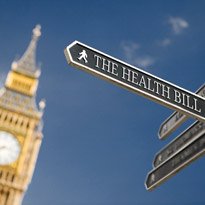The Royal College of General Practitioners has become the latest royal medical college to urge the government to withdraw its Health and Social Care Bill.
The move by the RCGP is in some ways surprising, since its immediate past president, Professor Steve Field, led the ‘listening exercise’ that was supposed to diffuse opposition to the Bill last summer.
However, RCGP chair Dr Clare Gerada said in a statement this morning that the college had been left with “no alternative” because, while the government claimed to have made concessions, successive amendments had “created wider confusion.”
“Our position has not changed, and the concerns we expressed when this Bill was at the white paper stage 18 months ago have still not been satisfactorily addressed.
“Competition, and the opening up our of health service to any qualified provider, will lead not only to fragmentation of care, but also potentially to a ‘two tier’ system with access to care defined by a patient’s ability to pay,” she said.
Dr Gerada added that the college supported “a greater role for GPs in the planning, design and delivery of services.”
But she said that instead of pushing ahead with clinical commissioning groups, the government should “consolidate” the current primary care trust clusters and give GPs a majority of the positions on their boards.
This, she argued, would allow the NHS to focus on its bigger financial challenges. The RCGP’s move is part of a growing wave of opposition to the Bill, which returns to the Lords next week.
The government first unveiled its reforms in the ‘Liberating the NHS’ white paper in June 2008. The paper unleashed a wave of reorganisation on planning and commissioning bodies, which has been worked through ahead of the passage of the Bill.
An NHS Commissioning Board has already been created in Leeds, and strategic health authorities and primary care trusts formed into clusters, while clinical commissioning groups have started to develop in shadow form.
However, there is scope for the reorganisation to stop at this point, since papers issued by the NHS CB this week indicate that the four SHA clusters and 50 PCT clusters will be retained as ‘commissioning sectors’ and ‘local offices.’
The other big concerns of the unions and the royal medical colleges have been clauses in the Bill that appear to remove the requirement on the health secretary to provide a ‘comprehensive’ service, free at the point of use, and moves to introduce more competition to the acute sector.
A set of amendments to the Bill, published on the Department of Health website this week, attempt to address the first point.
But they made little reference to the second – despite leaks to last Sunday’s papers that the government would be forced into ‘substantial’ changes on this issue.
Over the past few weeks, the Royal College of Surgeons, Royal College of Nursing and Royal College of Midwives have joined the BMA and Unison in outright opposition to the Bill.
Earlier this week, the editors of three major health journals argued that the Bill should be stopped and a proper, public debate on the future of the NHS put in its place.
However, on Radio 4’s Today programme this morning, health minister Simon Burns dismissed the opposition, saying it did not fit with what he was “hearing from GPs up and down the country.”
He also insisted that the government had addressed the major concerns about the Bill in its amendments.

